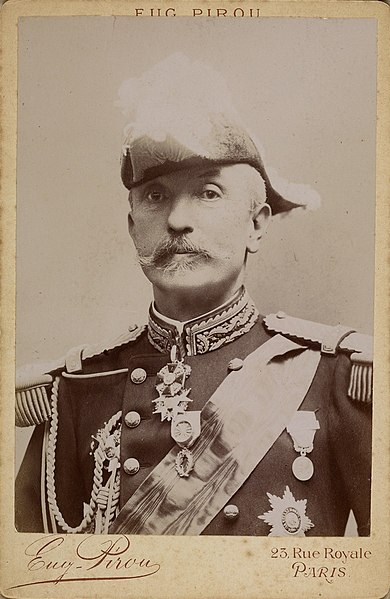The Dreyfus affair was a political scandal that divided the Third French Republic from 1894 until its resolution in 1906. The scandal began in December 1894 when Captain Alfred Dreyfus, a 35-year-old Alsatian French artillery officer of Jewish descent, was convicted of treason for communicating French military secrets to the German Embassy in Paris. He was sentenced to life imprisonment and sent overseas to the penal colony on Devil's Island in French Guiana, where he spent the following five years imprisoned in very harsh conditions.
Alfred Dreyfus
Dreyfus affair board game, 1898, Poster, 65 × 48 cm, Musée d'Art et d'Histoire du Judaisme
General Raoul Le Mouton de Boisdeffre, architect of the military alliance with Russia
No. 35 Amnistie populaire of the Musée des Horreurs depicts the hanged corpse of an antisemitic caricature of Alfred Dreyfus.
The French Third Republic was the system of government adopted in France from 4 September 1870, when the Second French Empire collapsed during the Franco-Prussian War, until 10 July 1940, after the Fall of France during World War II led to the formation of the Vichy government.
Proclamation of the abolition of the monarchy in front of the Palais Bourbon, seat of the Corps Législatif, on 4 September 1870
A French propaganda poster from 1917 is captioned with an 18th-century quote: "Even in 1788, Mirabeau was saying that War is the National Industry of Prussia."
The Sacré-Cœur Basilica was built as a symbol of the Ordre Moral.
Georges Ernest Boulanger, nicknamed Général Revanche








